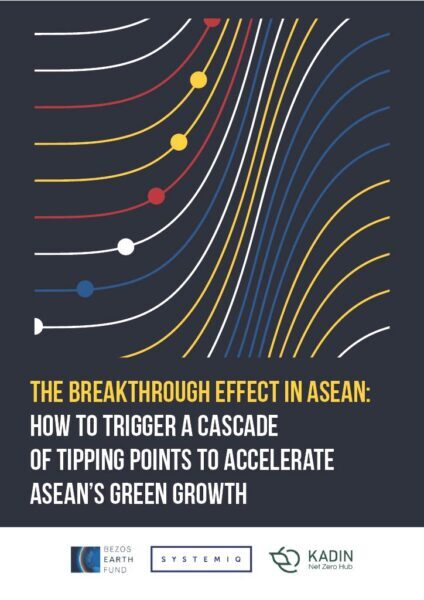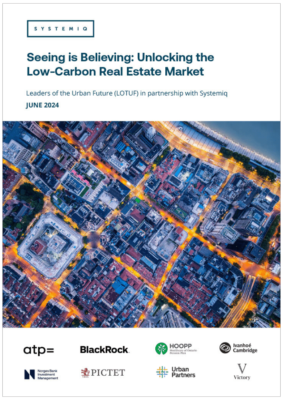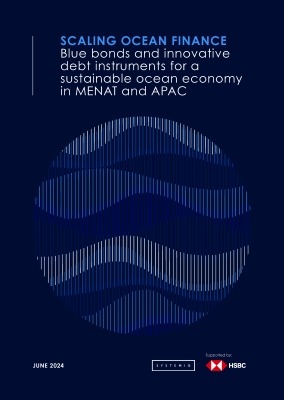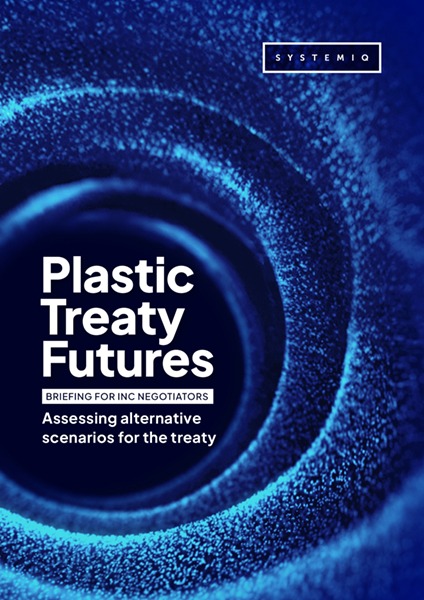A cascade of positive tipping points for zero-carbon solutions, in sectors covering half of ASEAN’s emissions, could be triggered by just two ‘super-leverage points’, says The Breakthrough Effect in ASEAN. The report shows how the public and private sectors can use tipping points to decarbonize industries in some of the world’s most climate-vulnerable countries – including Indonesia, Myanmar, Thailand and Vietnam.
As demonstrated in ‘The Breakthrough Effect‘, a tipping point happens when a zero-carbon solution advances to a point where it outcompetes the existing high-carbon solution. Once reached, self-reinforcing “feedback loops” drive exponential growth in the adoption of the new solution and a rapid decline of the old.
ASEAN is one of the most fossil-fuel-dependent regions. But it is also on the cusp of a series of tipping points, with the price of low-carbon solutions now close to matching existing high-carbon ones – and implementing policies that support these technologies could be the key to unlocking this green growth.




